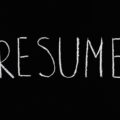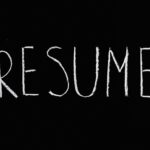This Novel-coronavirus pandemic has taught us one thing for sure and that is- “There’s nothing certain but uncertain”, right?
“It is not the strongest or most intelligent who will survive but those who can best manage change.”
Charles Darwin, an English Naturalist
In the current time, when we’re surrounded by ambiguities, the quote seems to radiate essence with which we could automatically resonate. Hence, whether you’re still contemplating your options of major or jobs or skills, it’s more likely that you’ll be pondering over how to prime yourself for progress in the ‘new normal’. Increasingly, employers look for people who not only have the technical know-how, AKA hard skill but also have interpersonal skills, communication, and leadership, AKA soft skill.
So, what’s your shot on hard skills vs. soft skills as novel job rotations start to appear? Do you consider one to be more important than the other? Let’s take a closer look at the issue.
Reflection of hard skills
While contemplating the hard skill, it illustrates the ability or capability acquired, mastered, or assessed through rehearsing or polishing. Indeed, it illustrates how qualified you’re for a particular task!
Having the right hard skill is almost a prerequisite for applying for any specialized job. In other words, academic, as well as professional experience in any discipline can be considered as hard skills. For example, to get a job as a programmer, you need to be skilled at coding, and that’s a hard skill. This skill plays a magnificent role to add value to your resume as this represents your degree of efficiency or competitiveness for your applying position.
Reflection of soft skills
Soft skills shape how you conduct with others and how you perceive work and life. They radiate the characteristics that make you an upright candidate in any situation, such as – etiquette, conversation, listening, as well as getting along with others. These skills can be acquired but are difficult to be measured like CGPA. Besides, we can look into communication skills, leadership skills, time management, critical thinking, problem-solving, adaptability, creativity etc as examples of the soft skills. It’s more likely, they’re ingrained in your attitude.
Hard skills vs Soft skills in recruiting
Things start to get interesting in the debate on the significance of hard skills vs soft skills. You may think that hard skills matter the most. However, the reality may be quite different. Since at least 1980, there has begun a rise in demand for soft skills. Yes, a CGPA 4.00, in papers, looks amazing. But it looks even better when it’s accompanied by other soft skills and technical experiences, right?

According to a report of Deloitte Access Economics, ‘Soft-skill-intensive occupations will account for two-thirds of all employment by 2030.’ Besides, CareerBuilder, an online career site founded in 1995, has surveyed that ‘77% of hiring managers and HR practitioners surveyed in 2014, said soft skills are just as crucial as hard skills. And 16% of those surveyed felt that soft skills were more essential than hard skills.’ In response to the digital alternatives of various aspects of the contemporary workplaces, creativity, better output, or should we say innovation, soft skills are momentous.
However, in many cases, the minimum threshold of hard skills, like – comprehensive schooling or maybe preparation, is one of the eligibility criteria. For, it’ll portray not only your capability, but also your strength of reasoning within a broader context with bona fide references.
And here’s where the dispute on hard vs. soft skills starts making sense. In all sincerity, the only way to advance your career is to have a combination of diverse and distinct hard skills. You also need a wide range of steadily improving soft skills, which will help you nurture the relationships you’ll be needing to pursue your aspired opportunities.
Soft skills and hard skills depict the two sides of a coin in any hiring process. Given the new normal context, let’s strengthen our soft skills too instead of solely focusing on the hard ones.

















